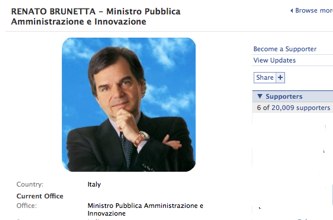The article I co-authored with my colleague Alberto Pepe, from UCLA, has been published in the December Issue of First Monday: “Political protest Italian–style: The blogosphere and mainstream media in the promotion and coverage of Beppe Grillo’s V–day” First Monday, Volume 14, Number 12 – 7 December 2009.
Here is the Abstract:
We analyze the organization, promotion and public perception of “V–day”, a political rally that took place on 8 September 2007, to protest against corruption in the Italian Parliament. Launched by blogger Beppe Grillo, and promoted via a word–of–mouth mobilization on the Italian blogosphere, V–day brought close to one million Italians in the streets on a single day, but was mostly ignored by mainstream media. This article is divided into two parts. In the first part, we analyze the volume and content of online articles published by both bloggers and mainstream news sources from 14 June (the day V–day was announced) until 15 September 2007 (one week after it took place). We find that the success of V–day can be attributed to the coverage of bloggers and small–scale local news outlets only, suggesting a strong grassroots component in the organization of the rally. We also find a dissonant thematic relationship between content published by blogs and mainstream media: while the majority of blogs analyzed promote V–day, major mainstream media sources critique the methods of information production and dissemination employed by Grillo. Based on this finding, in the second part of the study, we explore the role of Grillo in the organization of the rally from a network analysis perspective. We study the interlinking structure of the V–day blogosphere network, to determine its structure, its levels of heterogeneity, and resilience. Our analysis contradicts the hypothesis that Grillo served as a top–down, broadcast–like source of information. Rather, we find that information about V–day was transferred across heterogeneous nodes in a moderately robust and resilient core network of blogs. We speculate that the organization of V–day represents the very first case, in Italian history, of a political demonstration developed and promoted primarily via the use of social media on the Web.

